Parking with Park Assist Pilot
Park Assist Pilot (PAP1) helps the driver park via three steps. The function can also help the driver to leave a parking space.
Note
The PAP function measures the space and steers the car - the driver's task is to:
- keep a close watch around the car
- follow the instructions in the centre display
- select gear (reverse/forward) - a "ping" sound indicates when the driver should change gear
- control and maintain a safe speed
- brake and stop.
Symbols, graphics and/or text appear on the centre display's screen when the different steps are to be performed.
PAP can be activated if the following criteria are met once the engine has been started:
- No trailer is attached to the car
- Speed must be lower than 30 km/h (20 mph).
Note
The distance between the car and parking spaces should be 0.5-1.5 metres (1.6-5.0 ft) while PAP is searching for a parking space.
Parking
PAP parks the car using the following steps:
- A parking space is identified and measured.
- The car is reversed into the space.
- The car is positioned into the space - the system may then request that the driver changes gear.
Finding and measuring parking spaces
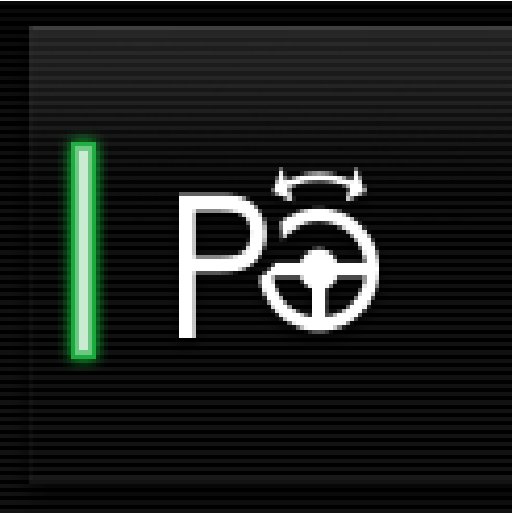
The function can be activated in the centre display's function view.
It can also be accessed from the camera views.
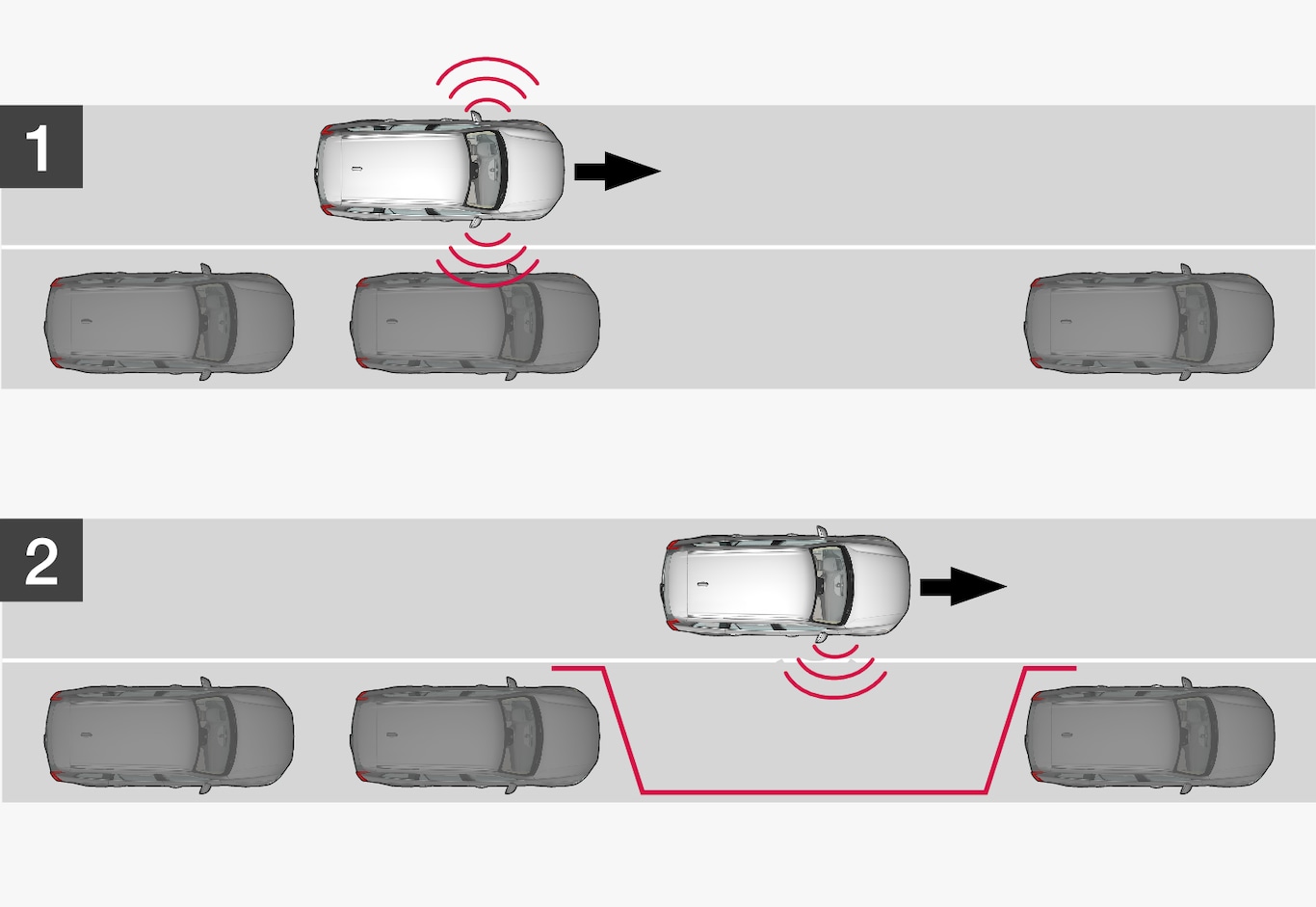
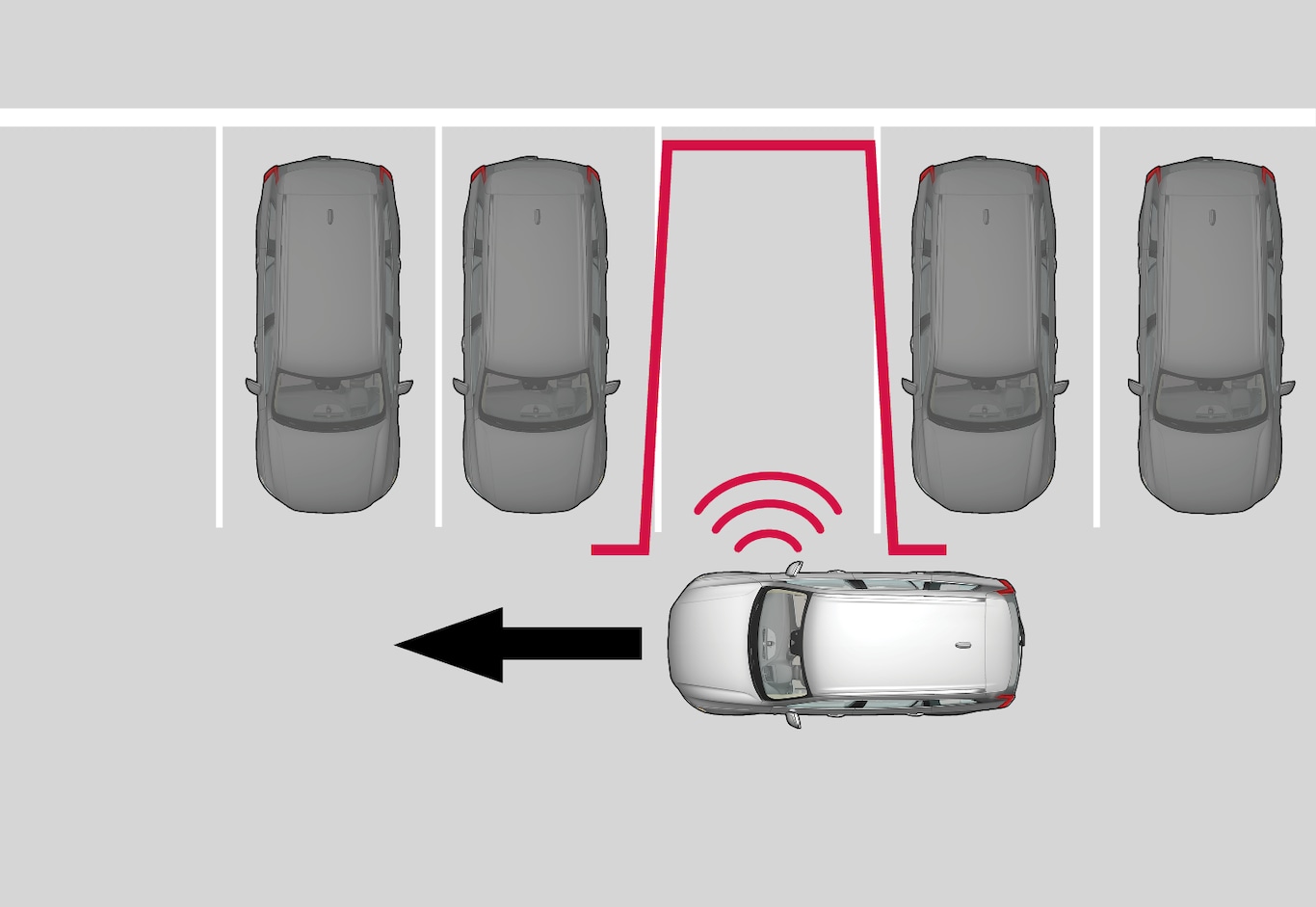
Proceed as follows:
Drive no faster than 30 km/h (20 mph) for parallel parking or 20 km/h (12 mph) for perpendicular parking.
Tap on the Park In button in the function view or in the camera view.
PAP searches for a parking space and checks whether it is big enough.
Be prepared to stop the car when the graphic and message on the centre display state that a suitable parking space has been found.
A pop-up window is shown.
Select Parallel parking or Perpendicular parking and select reverse gear.
Note
PAP searches the area for parking, displays instructions and guides the car in on its passenger side. But if required the car can also be parked on the driver's side of the street:
- Activate the direction indicator to the driver's side - then the system searches for a parking space on that side of the car instead.
Reversing in to the parking space
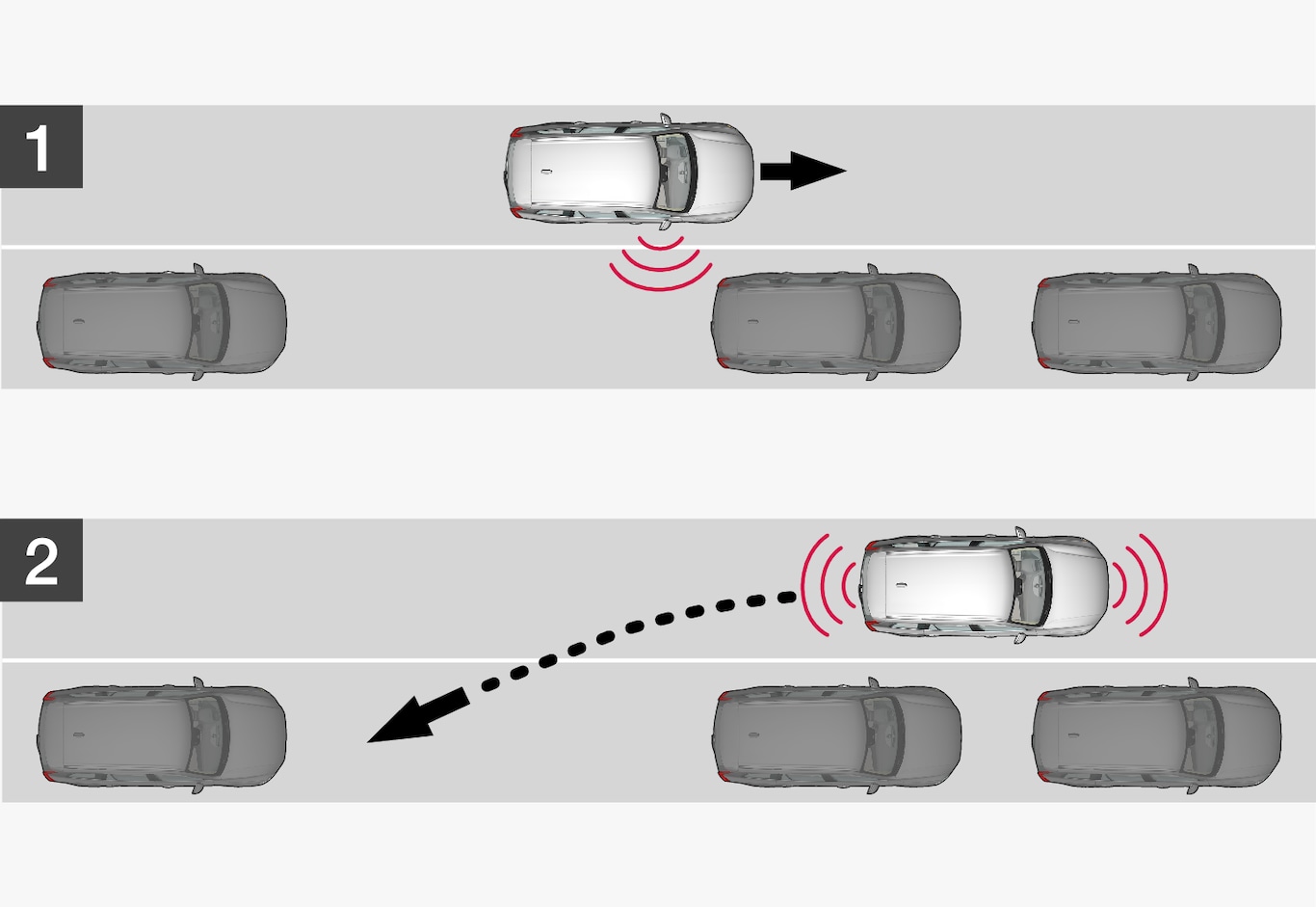
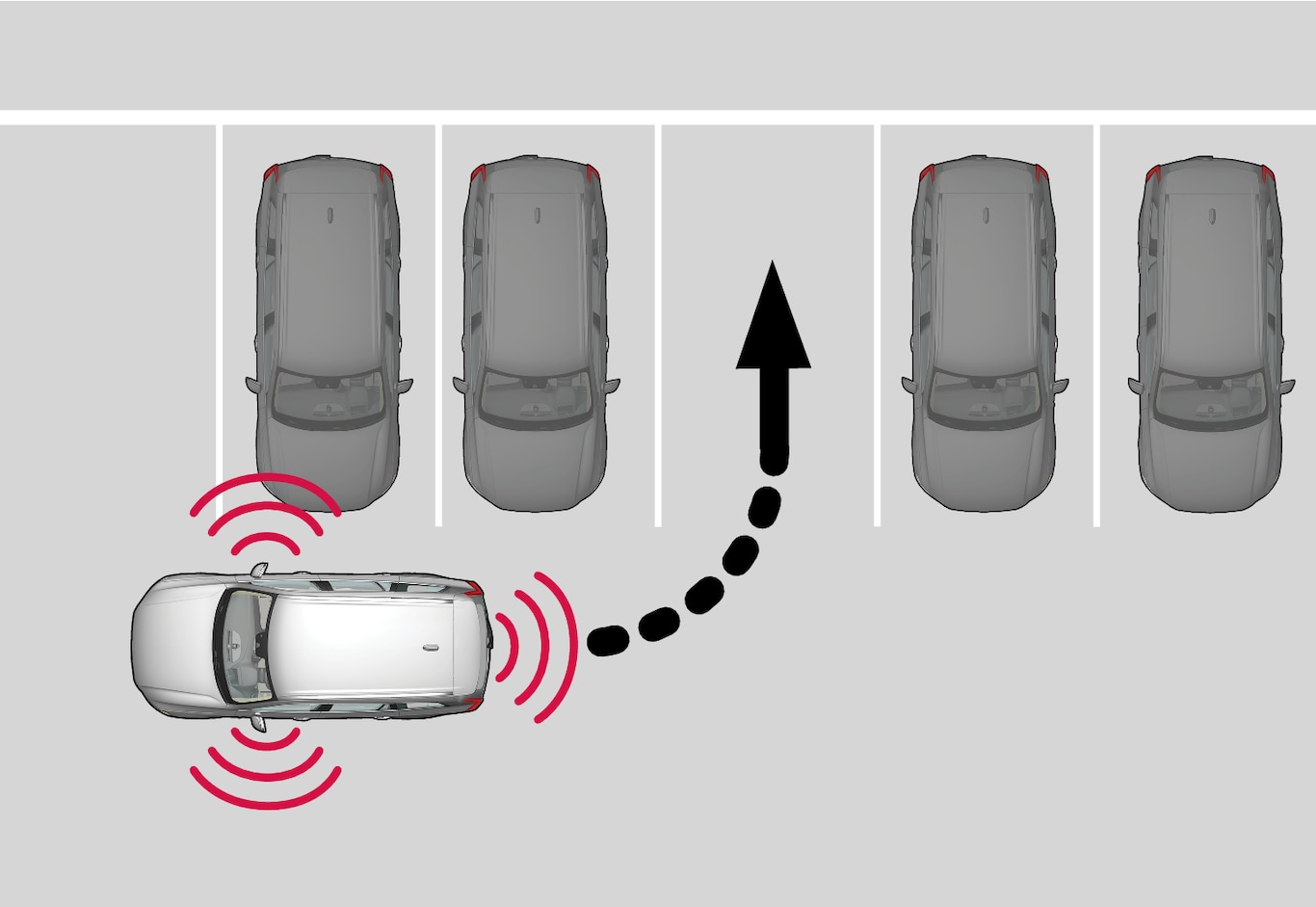
Perform the following to reverse the car into the parking space:
Check that the area behind the car is clear, then engage reverse gear.
Reverse slowly and carefully without touching the steering wheel - and no faster than 7 km/h (4 mph).
Be prepared to stop the car when instructed by the graphic and message on the centre display.
Note
- Keep your hands away from the steering wheel when the PAP function is activated.
- Make sure that the steering wheel is not hindered in any way and can rotate freely.
- To achieve optimum results - wait until the steering wheel is fully turned before starting to drive backward/forward.
Positioning the car in the parking space
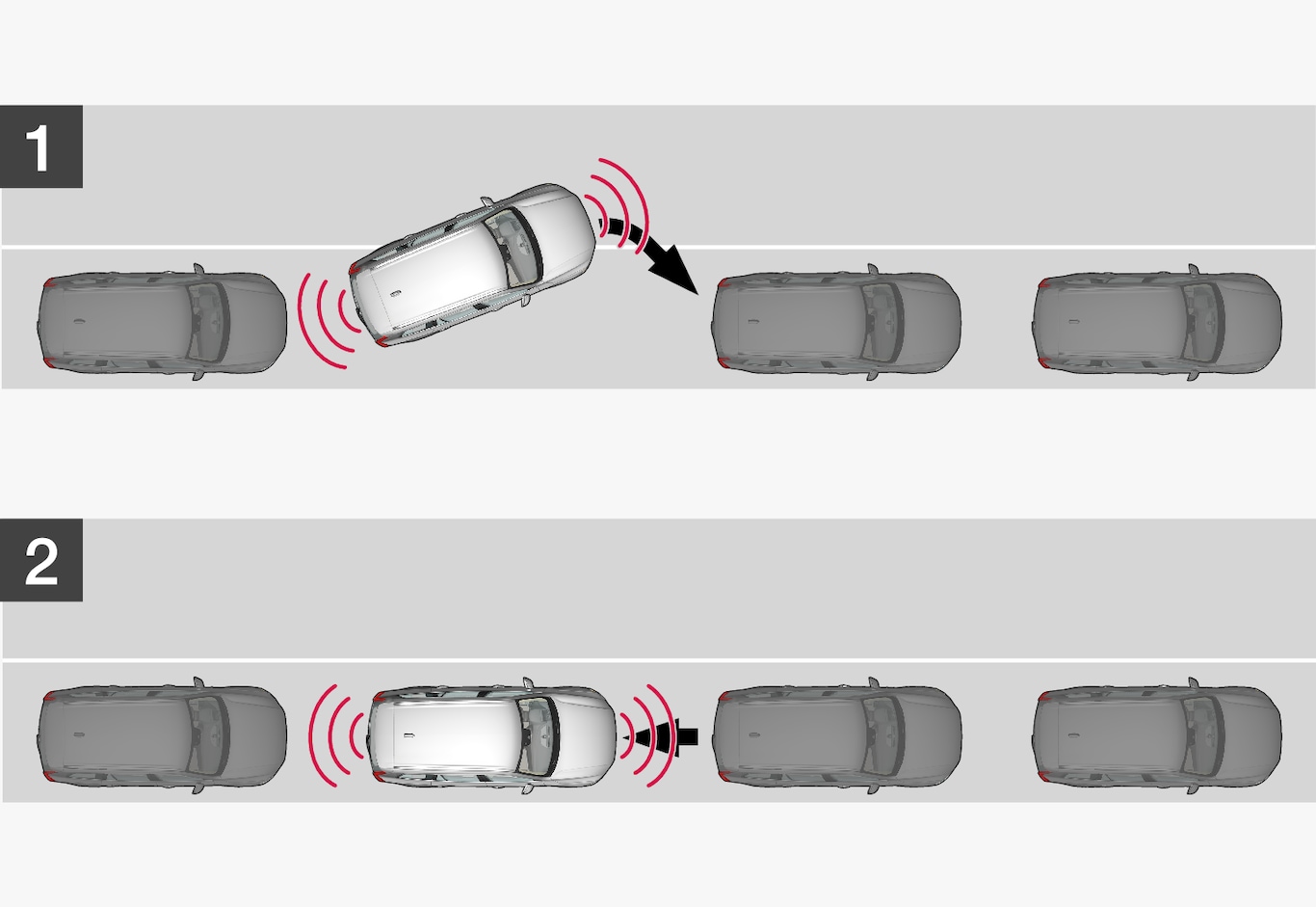

Proceed as follows:
Move the gear selector into the D position, wait until the steering wheel has been turned and drive slowly forward.
Be prepared to stop the car when instructed by the graphic and message on the centre display.
Select reverse gear and drive slowly backwards.
Be prepared to stop the car when instructed by the graphic and message on the centre display.
The function is deactivated automatically and the graphics and message show that parking is complete. It may be necessary for the driver to correct the car’s position. Only the driver can determine whether the car is properly parked.
Important
The warning distance is shorter when the sensors are used by PAP compared with when Park Assist uses the sensors.